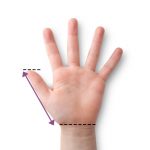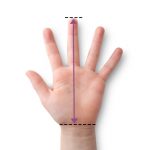We ask the question: what role does behavioural genetics play in thumb sucking?
Every parent of a child who thumb sucks has tried to work out why they developed the habit. The psychology of thumb suckingcan be bewildering to many. Is it something I did as a parent? Many people even grow concerned that thumb sucking is genetic and may affect their other children.
But is this true?
Thumb sucking: is it a commonly seen habit?
The answer to this question is easy: yes! Thumb sucking often starts in the womb as a natural reflex and is a very common habit to experience during childhood. US experts have stated that half of all one-year old’s suck their thumbs, and the habit stops at 3.8 years of age on average. More concerningly, the British Orthodontic Society has shown that one in every eight children between ages seven and 11 still suck their thumbs or fingers.
Organisations such as the Mayo Clinic recommend addressing sucking habits after the age of five, but most other experts suggest that if a child sucks their thumb beyond the age of seven that is especially concerning.
Thumb and finger sucking habit?
Help your child prevent the problems that prolonged and aggressive thumb and finger sucking can cause Buy NowDoes it run in families?
Despite a number of studies, there has been no discovery of a thumb sucking gene. There is some limited evidence that in twins if one child sucks their digits then the other twin is also likely to. Japanese research has shown that there is a genetic connection in sucking behaviour in 66 per cent of male twins, for example.
Austrian researchers have observed that thumb sucking behaviour, along with other oral habits such as nail biting, runs in families. But they also observed that this appears to be driven by learned behaviour and shared experiences rather than any specific genetic issue. Where siblings have experienced shared stress or anxiety for example, there is more likelihood that they will both suck their thumb.
It is important, however, to emphasise that studies are ongoing and there is no definitive answer yet.
Psychology of thumb sucking
The psychology behind thumb sucking is in fact relatively simple. The habit is typically a soothing mechanism that provides security and comfort, like being in a mother’s womb. Triggers for thumb sucking can include stress, anxiety, tiredness, hunger, boredom or fear. Once the child starts to associate thumb sucking with anxiety relief and comfort, then it gradually becomes a learned behaviour which is hard to break.
We know all too well that addictions start because they are gratifying. They serve a purpose for the person who develops the habit. In the case of thumb sucking that purpose is to soothe and provide comfort.
Harvard educated PhD Susan Heitler, has noted that “replacements are helpful” and we couldn’t agree more. And what would be the perfect replacement for a thumb? A Thumbsie® of course.
Thumbsie®
Children can become dependent on sucking their thumbs. If you are reading this, the chances are you know a child who is finding it difficult to stop. In these circumstances, it is not wise or effective to break the habit instantly. This is only likely to lead to a relapse in behaviour. No, the best way to stop the behaviour for the long-term is to wean off with the use of a special replacement: a Thumbsie.
Thumbsies® come in five different sizes. They are fun and are presented in a wide variety of designs. The dental industry supports us, as do the organisers of many awards. Best of all, parents love us, as our 4.8 stars on Google Reviews show.
Thumb sucking is not genetic, but it can be an example of learned behaviour. For this reason, it is better to try and break the habit before a child’s siblings pick it up. Thumbsies® are the perfect solution. They are child friendly and have a proven track record, making them the most successful way for a child to finally stop thumb sucking.
Please note all comments will need to be approved before appearing on this page. Please respect others when posting.





























Comments